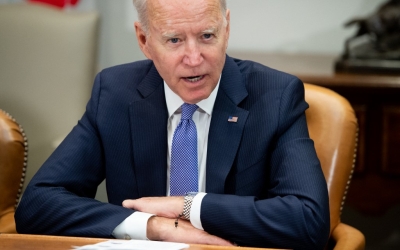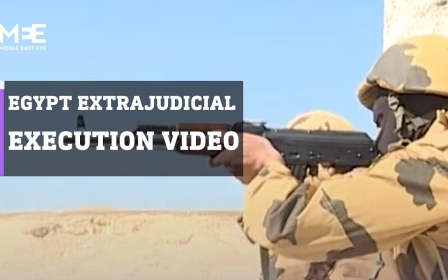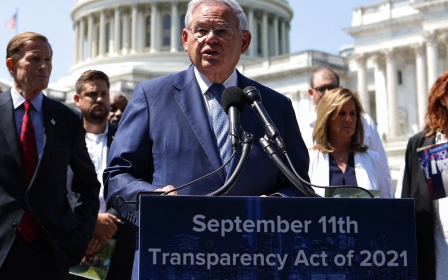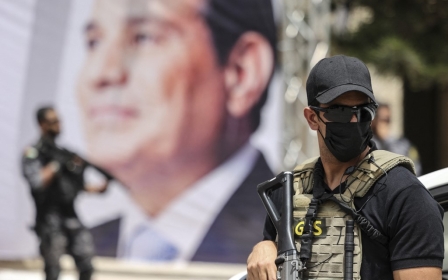Egypt says US lawmakers seeking to block aid are being 'deceived by terrorist group'
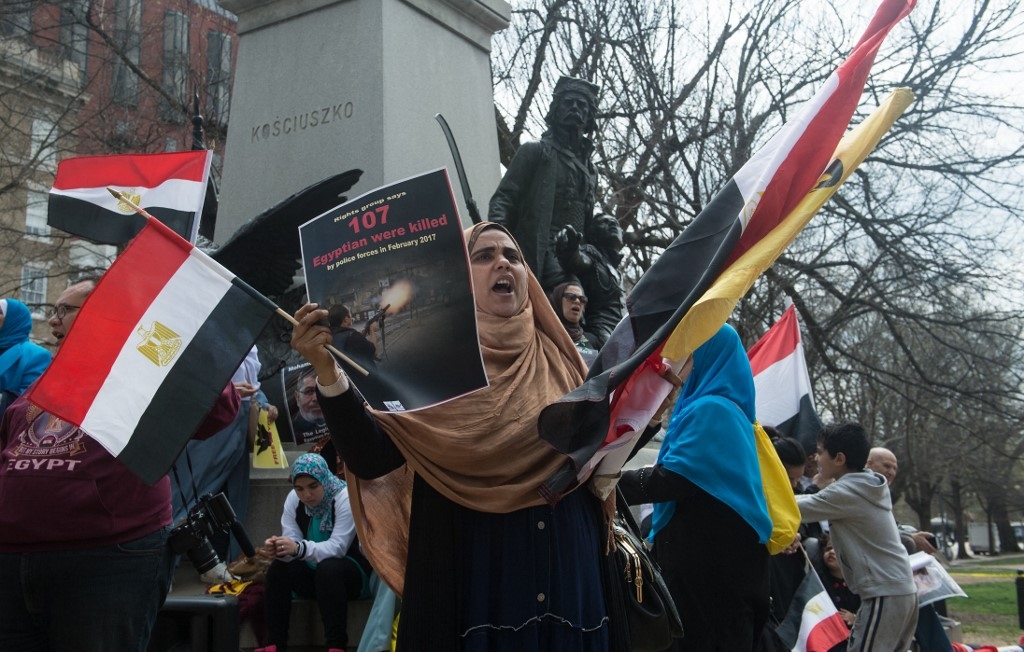
Egypt's ambassador to the United States has said lawmakers trying to limit the annual $1.3 billion in military aid Cairo receives from Washington are being "deceived" by members of a "terrorist organisation".
In a series of tweets attributed to Ambassador Motaz Zahran, the Egyptian embassy in Washington on Wednesday praised decades of close ties with the US and the support of the Biden administration and members of Congress in bolstering bilateral ties.
New MEE newsletter: Jerusalem Dispatch
Sign up to get the latest insights and analysis on Israel-Palestine, alongside Turkey Unpacked and other MEE newsletters
Zahran then went on to say that some lawmakers refused "to be deceived by lies and falsehoods propagated by people who belong to a terrorist organization".
The tweets appeared to be in reference to calls from prominent lawmakers, including Senator Chris Murphy and Congressmen Adam Schiff and Tom Malinowski, to cut military assistance to Cairo over human rights concerns.
The social media posts were lambasted by lawmakers and rights advocates, who said they showed how brazen the Egyptian government had become in asserting its interests to the US.
"Nothing conveys the entitled arrogance of Egypt’s dictatorship better than taking $1.3 billion a year in US taxpayers funds while accusing members of Congress concerned about human rights (including detention & torture of innocent Americans) of being deceived by 'terrorists,'" Malinowski said in a tweet.
Human Rights Watch advocacy officer Elisa Epstein called Zahran's tweets "deeply harmful and concerning".
"Those of us who rightly inform members of Congress of Egypt’s human rights record are providing important context to push the US to abide by its own and [international] law standards in setting US policy," she tweeted.
The Egyptian embassy in Washington did not respond to Middle East Eye's request for clarification on what "lies" or which "terrorist organisation" it was referring to.
'No more blank cheques'
Since seizing power, the government of President Abdel Fattah el-Sisi is reported to have jailed more than 60,000 dissidents, according to human rights organisations.
Last year, Egypt had the world's third-largest number of executions, with dozens of political prisoners on death row.
In 2014, Congress began imposing human rights conditions that would halt $300m of the total $1.3bn in military aid to Egypt, but previous administrations issued national security waivers to bypass the restrictions.
Last year, Biden said on the campaign trail that there would be "no more blank checks" for Sisi, in contrast to former President Donald Trump, who reportedly referred to the Egyptian leader as his "favourite dictator".
'The fundamental importance of human rights are, and will remain, an essential element of any arms transfer decision'
- Mira Resnick, State Department Bureau of Political-Military Affairs
Rights advocates are currently calling on Biden to hold firm to his promise, and are urging the administration to not issue another national security waiver to bypass the halt in assistance. The administration has until the end of September to decide whether to continue with the aid or not.
Last month, Senator Murphy said the administration must withhold the aid "as required by law", saying Cairo "has not made the progress necessary under the law on human rights and political speech".
However, administration officials defended assistance to the north African country in a Senate hearing earlier this week.
Mira Resnick, deputy assistant secretary for regional affairs in the State Department's Bureau of Political-Military Affairs, said concerns were raised by the White House with the "highest level" of the Egyptian government, but Cairo remained a "critical security partner".
"The president himself has underscored the importance of a constructive dialogue on human rights with the government of Egypt and we will continue to pursue this, even as we pursue shared security goals on maritime security, on border security, on counter-terrorism," she said during a hearing with the Senate Foreign Relations subcommittee on the Middle East.
"Let me stress that the fundamental importance of human rights are, and will remain, an essential element of any arms transfer decision," she added.
Middle East Eye delivers independent and unrivalled coverage and analysis of the Middle East, North Africa and beyond. To learn more about republishing this content and the associated fees, please fill out this form. More about MEE can be found here.


